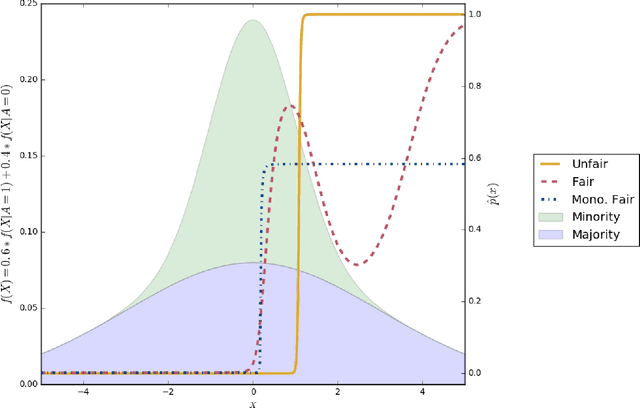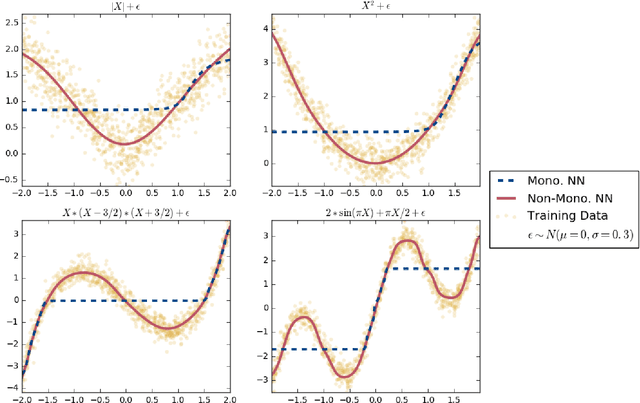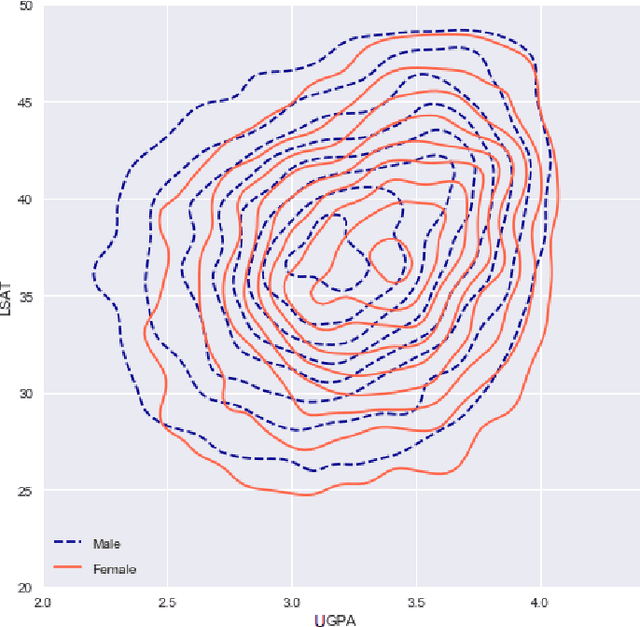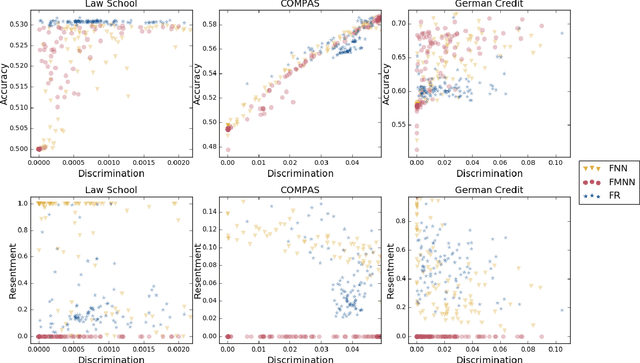Avoiding Resentment Via Monotonic Fairness
Paper and Code
Sep 03, 2019



Classifiers that achieve demographic balance by explicitly using protected attributes such as race or gender are often politically or culturally controversial due to their lack of individual fairness, i.e. individuals with similar qualifications will receive different outcomes. Individually and group fair decision criteria can produce counter-intuitive results, e.g. that the optimal constrained boundary may reject intuitively better candidates due to demographic imbalance in similar candidates. Both approaches can be seen as introducing individual resentment, where some individuals would have received a better outcome if they either belonged to a different demographic class and had the same qualifications, or if they remained in the same class but had objectively worse qualifications (e.g. lower test scores). We show that both forms of resentment can be avoided by using monotonically constrained machine learning models to create individually fair, demographically balanced classifiers.
 Add to Chrome
Add to Chrome Add to Firefox
Add to Firefox Add to Edge
Add to Edge